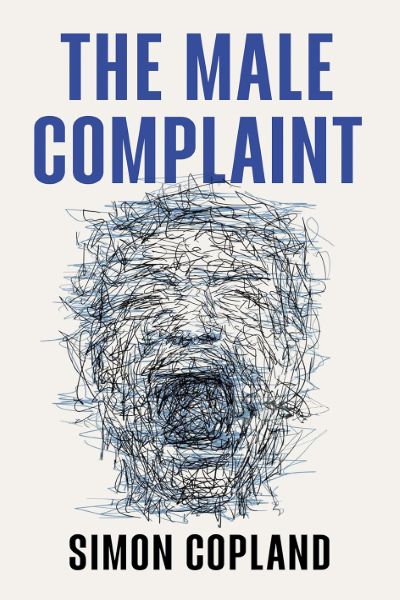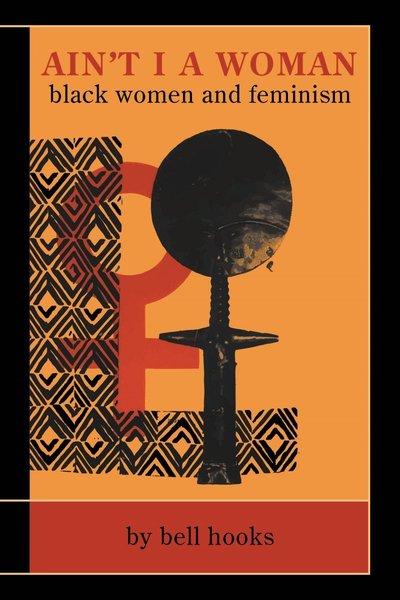The Male Complaint: The Manosphere and Misogyny Online
A comprehensive analysis of the online manosphere and its relationship to contemporary misogyny. Copland examines how digital platforms have enabled the formation of misogynistic communities that blend historical male grievances with modern technological capabilities to create new forms of anti-feminist resistance.

📝 Book Review
“The Male Complaint: The Manosphere and Misogyny Online” represents a crucial intervention in understanding one of the most significant challenges facing contemporary feminism: the organized digital backlash against women’s rights and gender equality. Simon James Copland’s comprehensive analysis reveals how online platforms have enabled the formation and proliferation of misogynistic communities that combine historical patterns of male grievance with modern technological capabilities to create unprecedented forms of anti-feminist resistance.
Simon James Copland, an Honorary Fellow at the Australian National University, brings exceptional scholarly expertise to this critical examination of online misogyny. His interdisciplinary approach draws from sociology, digital media studies, political science, and feminist theory to provide a comprehensive understanding of how the manosphere operates as both a cultural phenomenon and a political force. Copland’s background in studying digital communities and social movements positions him uniquely to analyze the ways online platforms have transformed traditional patterns of gender-based hostility into organized movements with real-world consequences.
Copland’s methodology throughout the book demonstrates rigorous scholarly analysis combined with deep engagement with primary sources from manosphere communities themselves. Rather than relying solely on external commentary or secondary analysis, he provides detailed examination of the actual content, rhetoric, and organizational strategies employed by these communities. This approach allows him to reveal not only what the manosphere says about itself but also the underlying ideologies and material interests that drive its activities.
The Manosphere as Digital Phenomenon
Copland’s analysis begins with a comprehensive mapping of what he terms the “manosphere” – the interconnected network of online communities, forums, websites, and social media spaces dedicated to articulating various forms of male grievance against feminism, women’s rights, and gender equality. He demonstrates how these communities, while diverse in their specific focuses and tactics, share fundamental commitments to reasserting male dominance and rolling back feminist gains.
The manosphere, as Copland reveals, encompasses a broad range of subcommunities, each with its own particular focus but all united by a shared antipathy toward feminist politics. These include Men’s Rights Activists (MRAs) who claim to advocate for men’s rights while primarily opposing women’s advancement; Pick-Up Artists (PUAs) who promote manipulative tactics for sexual conquest; Men Going Their Own Way (MGTOW) who advocate male withdrawal from relationships with women; and the involuntary celibate (incel) community that combines sexual frustration with violent misogyny.
Copland’s analysis reveals how these seemingly disparate communities are connected through shared ideological frameworks, common rhetorical strategies, and overlapping membership. He demonstrates how individuals often move between different manosphere communities, adopting different aspects of manosphere ideology while maintaining consistent antipathy toward feminist politics and women’s equality.
Historical Context and Contemporary Manifestation
One of Copland’s most significant contributions involves his analysis of how contemporary manosphere communities connect to historical patterns of male backlash against women’s advancement. He demonstrates that while the technological platforms are new, the underlying grievances and ideological frameworks employed by the manosphere have deep historical roots in previous periods of feminist progress and male resistance.
Copland traces how economic, social, and political changes that have improved women’s status have consistently provoked organized male backlash throughout history. He shows how the contemporary manosphere represents a digital-age manifestation of these historical patterns, employing new technologies to organize and amplify traditional forms of male grievance while developing new tactics suited to online environments.
This historical analysis proves crucial for understanding why the manosphere has emerged with particular intensity in the current moment. Copland demonstrates how economic insecurity, changing gender roles, and feminist advances have created conditions that make manosphere ideologies appealing to men who feel displaced by social change. His analysis reveals how the manosphere capitalizes on genuine economic and social anxieties while redirecting them toward anti-feminist rather than progressive political solutions.
The Economics of Male Grievance
Copland provides sophisticated analysis of the economic dimensions of manosphere ideology, revealing how economic insecurity and changing labor market conditions have contributed to the appeal of anti-feminist politics among certain groups of men. He demonstrates how the decline of traditional male-dominated industries, the rise of service-sector employment, and increasing economic competition from women have created material conditions that make manosphere narratives seem plausible to men experiencing economic displacement.
However, Copland’s analysis reveals how the manosphere consistently misdiagnoses the sources of male economic insecurity, attributing problems caused by capitalist economic restructuring to feminist advancement and women’s equality. He shows how this misdiagnosis serves the interests of existing power structures by channeling male frustration away from critiques of capitalism and toward attacks on feminism and women’s rights.
The economic analysis extends to examination of how the manosphere has become a profitable enterprise for its leading figures, who monetize male grievance through books, courses, coaching services, and subscription-based content. Copland reveals how the commodification of anti-feminist sentiment has created material incentives for manosphere leaders to escalate their rhetoric and expand their reach, turning male discontent into a business model.
Digital Platforms and Algorithmic Amplification
A crucial aspect of Copland’s analysis involves examination of how digital platforms and algorithmic systems have enabled the growth and spread of manosphere content. He demonstrates how social media algorithms, designed to maximize engagement, often amplify extreme and controversial content, providing manosphere communities with unprecedented reach and influence.
Copland’s analysis reveals how platforms like YouTube, Reddit, Twitter, and Facebook have become crucial infrastructure for manosphere organizing, allowing these communities to reach audiences far beyond their core membership while maintaining plausible deniability about their more extreme content. He shows how algorithmic systems create “rabbit holes” that can lead users from relatively mainstream content toward increasingly extreme manosphere ideologies.
The platform analysis extends to examination of how manosphere communities adapt their messaging and tactics to the specific affordances of different digital platforms. Copland reveals how these communities have become sophisticated in their use of memes, viral content, and platform-specific features to spread their messages and recruit new members while evading content moderation efforts.
Rhetorical Strategies and Ideological Frameworks
Copland provides detailed analysis of the rhetorical strategies employed by manosphere communities to make their anti-feminist messages appealing to broader audiences. He reveals how these communities have developed sophisticated techniques for presenting extreme ideologies in seemingly reasonable or scientific language, often appropriating feminist and progressive terminology to advance anti-feminist arguments.
The analysis reveals how manosphere rhetoric consistently employs victimization narratives that position men as the primary victims of gender inequality while minimizing or denying women’s experiences of discrimination and violence. Copland demonstrates how these communities use selective statistics, pseudoscientific arguments, and historical revisionism to construct compelling narratives of male oppression that justify anti-feminist activism.
Copland’s examination of manosphere ideology reveals how these communities blend traditional misogynistic beliefs with contemporary political and cultural anxieties to create coherent worldviews that explain male discontent while providing clear targets for political action. He shows how this ideological synthesis makes manosphere beliefs particularly appealing to men seeking explanations for their personal and political frustrations.
The Relationship Between Online and Offline Violence
One of the most important aspects of Copland’s analysis involves examination of the relationship between online manosphere activity and real-world violence against women. He provides careful analysis of how manosphere communities contribute to climates of hostility and violence while often maintaining plausible deniability about direct incitement to violence.
Copland traces connections between manosphere ideology and various forms of gender-based violence, from harassment and stalking to mass violence events carried out by individuals connected to manosphere communities. He demonstrates how online manosphere spaces serve as both recruitment and radicalization environments that can inspire real-world violence while providing ideological justification for anti-feminist actions.
The analysis extends beyond individual acts of violence to examine how manosphere communities contribute to broader cultural normalization of misogyny and hostility toward women’s rights. Copland reveals how the constant circulation of anti-feminist content creates cultural conditions that make various forms of gender-based discrimination and violence seem more acceptable or justified.
Political Mobilization and Electoral Impact
Copland’s analysis demonstrates how manosphere communities have increasingly engaged in formal political mobilization, supporting candidates and causes that advance anti-feminist agendas while opposing feminist political victories. He reveals how these communities have become significant forces in contemporary political coalitions, particularly those organized around right-wing populist and authoritarian politics.
The political analysis reveals how manosphere communities have learned to translate their online organizing capabilities into electoral influence, using social media platforms to mobilize voters, spread political messages, and coordinate campaign activities. Copland demonstrates how this political engagement has given manosphere ideologies increased mainstream respectability while providing these communities with concrete policy victories.
Copland’s examination of manosphere political engagement reveals how these communities have become integrated into broader conservative and far-right political movements, providing crucial support for politicians and causes that oppose feminist advancement while advancing authoritarian and patriarchal political agendas.
International Dimensions and Global Spread
The book’s analysis extends beyond any single national context to examine how manosphere ideologies and communities have spread internationally, creating global networks of anti-feminist organizing. Copland demonstrates how digital platforms have enabled manosphere communities to transcend national boundaries while adapting their messages to local cultural and political contexts.
Copland reveals how manosphere ideologies have been particularly influential in contexts where traditional gender roles are being challenged by feminist movements and changing economic conditions. He shows how these communities have learned to exploit cultural anxieties about changing gender relations while presenting themselves as defenders of traditional values against feminist “invasion.”
The international analysis reveals how manosphere communities share tactics, rhetoric, and organizational strategies across national boundaries, creating a global infrastructure for anti-feminist organizing that can respond rapidly to feminist advances in any particular context while providing mutual support and reinforcement for local anti-feminist efforts.
The Response to Feminist Advancement
Throughout his analysis, Copland demonstrates how manosphere communities function primarily as reactive forces, responding to feminist political victories and cultural changes with increasingly organized and sophisticated forms of resistance. He reveals how these communities monitor feminist activities, develop counter-strategies to feminist campaigns, and mobilize resources to oppose feminist advancement.
The analysis reveals how manosphere opposition to feminism extends beyond simple disagreement to encompass systematic efforts to undermine feminist organizations, discredit feminist leaders, and reverse feminist political gains. Copland demonstrates how these communities employ tactics ranging from harassment and doxxing to coordinated disinformation campaigns designed to damage feminist movements and their supporters.
Copland’s examination of manosphere anti-feminism reveals how these communities have developed increasingly sophisticated understanding of feminist politics and strategies, allowing them to develop more effective forms of opposition while presenting themselves as legitimate participants in gender-related debates rather than simply reactionary forces opposing women’s equality.
Psychological Dimensions and Identity Formation
Copland provides insightful analysis of the psychological dimensions of manosphere participation, examining how these communities provide identity, community, and meaning for men who feel displaced by contemporary social and economic changes. He reveals how manosphere ideologies offer compelling explanations for male discontent while providing clear targets for blame and action.
The psychological analysis demonstrates how manosphere communities function as alternative masculinity movements that promise to restore male status and power through adherence to manosphere ideologies and participation in anti-feminist activities. Copland reveals how these communities provide social connection and identity validation for men who may feel isolated or unsuccessful in other areas of their lives.
However, Copland’s analysis also reveals the psychological costs of manosphere participation, showing how these communities often increase rather than decrease male isolation and discontent by promoting worldviews that make healthy relationships with women difficult or impossible while encouraging resentment and hostility that can damage men’s overall well-being.
Counter-Strategies and Resistance
While primarily focused on analysis rather than prescription, Copland concludes by examining various strategies that have been developed to counter manosphere influence and organize resistance to online misogyny. He evaluates the effectiveness of different approaches, from content moderation and platform regulation to counter-messaging and alternative community building.
Copland’s analysis reveals both the possibilities and limitations of various counter-strategies, demonstrating how the decentralized and adaptive nature of manosphere communities makes them particularly difficult to combat through traditional regulatory or educational approaches. He suggests that effective resistance requires understanding the material conditions that make manosphere ideologies appealing while developing alternative narratives and communities that address male concerns without promoting anti-feminist politics.
Implications for Feminist Strategy
Throughout the book, Copland’s analysis provides crucial insights for feminist movements seeking to understand and respond to organized online misogyny. His work reveals how the manosphere represents not simply random hostility but organized political opposition that requires strategic feminist response rather than simply defensive reactions.
The analysis suggests that effective feminist responses to the manosphere require understanding both the technological dimensions of online organizing and the material conditions that make anti-feminist politics appealing to certain groups of men. Copland’s work implies that feminist movements must develop more sophisticated analysis of how digital platforms operate while also addressing the economic and social anxieties that the manosphere exploits for anti-feminist ends.
Contemporary Relevance and Future Implications
“The Male Complaint” provides essential analysis for understanding one of the most significant challenges facing contemporary feminist movements. Copland’s comprehensive examination of the manosphere reveals how anti-feminist forces have adapted to digital environments while developing increasingly sophisticated strategies for opposing women’s equality.
The book’s analysis proves particularly valuable for understanding how online misogyny connects to broader political developments, including the rise of authoritarian and far-right movements that have found common cause with manosphere communities. Copland’s work provides crucial insights for anyone seeking to understand how gender politics intersect with other forms of political conflict in the digital age.
Through his rigorous and comprehensive analysis, Simon James Copland has provided an essential resource for understanding the contemporary landscape of organized anti-feminism. “The Male Complaint” stands as both crucial analysis of a significant political phenomenon and an important contribution to understanding how digital technologies are reshaping political conflict around gender and equality. His work reveals the urgency of developing more effective strategies for countering online misogyny while demonstrating the sophisticated nature of the challenges facing feminist movements in the digital age.
Book Info
Related Topics
🛒 Get This Book
 Buy on Amazon
Buy on Amazon Related Books
Book Discussion
Share your thoughts and opinions on this book and exchange insights with other readers
Join the Discussion
Share your thoughts and opinions on this book and exchange insights with other readers
Loading comments...


